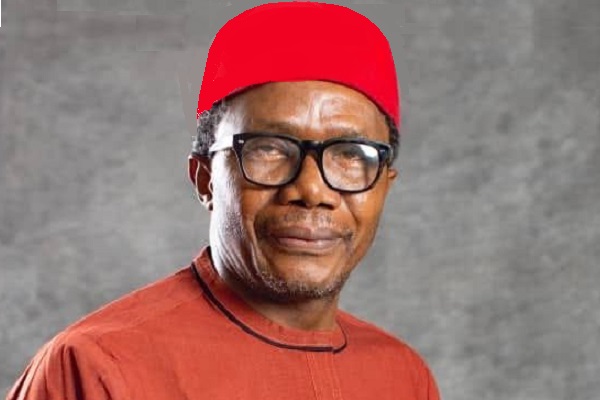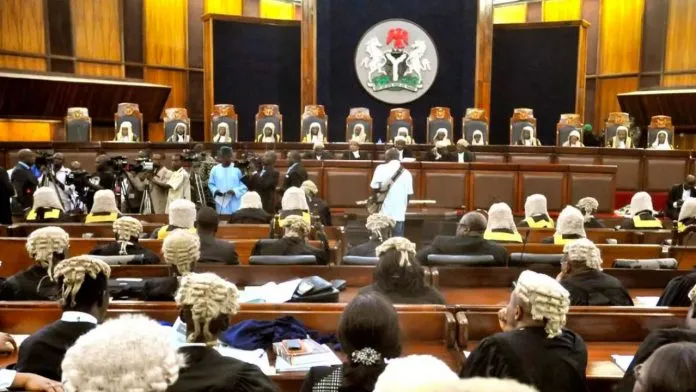Nigeria is faced with serious challenges. The country is in dire need of a reset, and Asiwaju Bola Tinubu has been given the task as president if the country is to regain perspective, unite, advance, and join the league of developed nations. In his first year in office, the President has taken several bold actions that have disturbed those who think they own Nigeria. These actions have established a clear trajectory of where the country is headed if all hands are on the plough.
Unfortunately, the forces that have created the current situation are not going away. Rather than allowing the basic reforms to set the country free for the benefit of all citizens, they would prefer that Nigeria stay as it is for the benefit of a select few.
The fact is that Nigeria’s socio-political and economic problems now pose an existential threat to both the nation and its people. Past administrations forced the nation to live in delusions of economic prosperity by deferring many difficult decisions to their successors. The nation and its people are currently faced with economic challenges brought on by the removal of these illusions. The End-Hunger protests launched by young Nigerians whose lives and futures were mortgaged and eaten up by previous governments have left the country stunned.
Amidst the country’s current state of flux, a group of legislators visited Chief Olusegun Obasanjo, the former president of Nigeria. The legislators said they went to see the former president and elder statesman out of the need for fairness, equality, and justice. They wanted his support and understanding for a bill that would rotate the governorship positions among the three senatorial districts in each of the 36 states that make up the Federation, as well as a single six-year term for the president between the North and the South.
Normally, the parliamentarians’ goal would be viewed as honourable and patriotic, but in light of recent events, it seems that the action is part of a larger plan aimed at upending the central government. These lawmakers, if they were uninformed, ought to take caution now. The former president seized the moment to take a swipe at the government, accusing both the executive and legislative arms. He also used the moment to reject liberal democracy as practiced in Nigeria and Africa.
Though one does not speak for the national assembly, it must be stated that it cannot be true that the national assembly has turned into a refuge for looters, as Chief Obasanjo impugned. Since the Obasanjo era as president, not much has changed about the management of the national assembly. If anything, the national assembly has improved and is now more coordinated with the executive, as evidenced by the bills passing more quickly and the enhanced cooperation. Saying otherwise will be misinformation.
In contrast to today’s national assembly, during the Obasanjo presidency, three Senate presidents were curiously impeached, the highest turnover in the nation’s history. The national assembly was covered in banana peels laid by his presidency. Two more Senate presidents made it out alive but never returned to the Senate. In a presidential democracy, which is predicated on the fundamentals of separation of powers, there was an absence of coordinated interaction and mutual respect between the two branches of government under Chief Obasanjo. Granted, the arms should check each other but should not be a barrier to one another either.
During the visit, Chief Obasanjo bemoaned the fact that the nation had suffered serious setbacks as a result of subsequent governments’ failure to build on the foundation he laid. The question should be: What foundation? You can’t put something on nothing and expect it to stand, as lawyers would say. President Olusegun Obasanjo (as he was then) fought all attempts to alter the hastily coupled 1999 constitution, which needs to be reconstructed to create a basic federal constitution through amendments to enable the nation to move forward. The last attempt to amend the constitution in his time was also truncated by the smuggling of the 3rd term into it.
A saying goes: “Old men plant trees under which shade they know they will never take shelter.” The truth is that the country is currently bearing the price for the maladministration of previous administrations, which includes that of Chief Obasanjo, who, with his ceaseless letter writing and caustic, disparaging statements, prevented his successors from having any breathing space to do their job.
The former president’s allegation that national assembly members manipulate their pay and collect as much as N200 million in gratifications from the presidency for mysterious reasons is far more unsettling. His words: “You are not supposed to fix your salaries or your allowances; it is supposed to be done by the RMFAC, but you decide what you pay yourselves, the allowances that you give yourselves—newspaper allowances, pant allowances—you give yourself all sorts of things. As I have warned earlier, we should recognise that we are all sitting on a powder keg if we fail to begin doing the right thing.”
The truth is that the National Assembly has never set its pay packets. The Revenue Mobilisation, Allocation, and Fiscal Commission (RMAFC) has always handled NASS members’ salaries and allowances. Therefore, it is unfortunate for serving lawmakers to be with the former president when such facts were misrepresented and members of the national assembly referred to as looters in explicit terms without correcting the damaging misinformation. The question is: why? Can these lawmakers claim they do not know what they earn and the source, or are they just out to embarrass the national assembly and the president?
Furthermore, what are “the right things” to which Chief Obasanjo was alluding? He expressed his disappointment that successive administrations had not built on the foundation his government established. But the fact is: the foundation he laid is part of the problem. As the first Nigerian president to designate himself as the petroleum minister, Chief Obasanjo, for example, initiated the complexities and oddities in the oil sector, which initiated its opaqueness that President Tinubu inherited.
Also during his presidency, men who were integrity-challenged were elevated to positions of political authority and empowered to seize control of their states. Anambra State, where a sitting governor was kidnapped by outlaws and others who he positioned in power and wealth, remains a chilling example of how Chief Obasanjo’s presidency laid the foundation of malignancy in the nation’s polity today, a cancerous growth that has to be removed.
It was also how the Peoples Democratic Party lost Anambra State, and, with all due respect, that’s the gas lighting that robbed Dr. Goodluck Ebele Jonathan of his reelection as president and brought the disastrous Buhari government, which brought the giant of Africa, Nigeria, on her knees and allowed the country to wallow in insecurity.
For the records, the lawmakers who paid a visit to Chief Obasanjo at his Olusegun Obasanjo Presidential Library in Abeokuta were Ugochinyere Ikenga from Imo, Peter Aniekwe from Anambra, Kama Nkemkanma from Ebonyi, Abdulmalik Danga from Kogi, and Usman Midala from Borno.
In moments like this, when a country finds itself in a precarious situation, patriots, especially statesmen, unite with the administration to save their country. Disagreements are put aside, and everyone pitches in to save the nation from disaster. Electioneering campaigns are over. So, statesmen in particular should allow President Bola Tinubu the opportunity to govern and change the country for the better, as he promised.
Regarding former presidents and heads of state, they have a Council of State as well as back channels to correct the current administration where they strongly believe that it has erred, and that way ensure that their crucial viewpoints are heard and utilised and not heard on the pages of newspapers.
*Dr. Law Mefor, an Abuja-based forensic and social psychologist, is a fellow of The Abuja School of Social and Political Thought; [email protected]; Twitter: @Drlawsonmefor.





